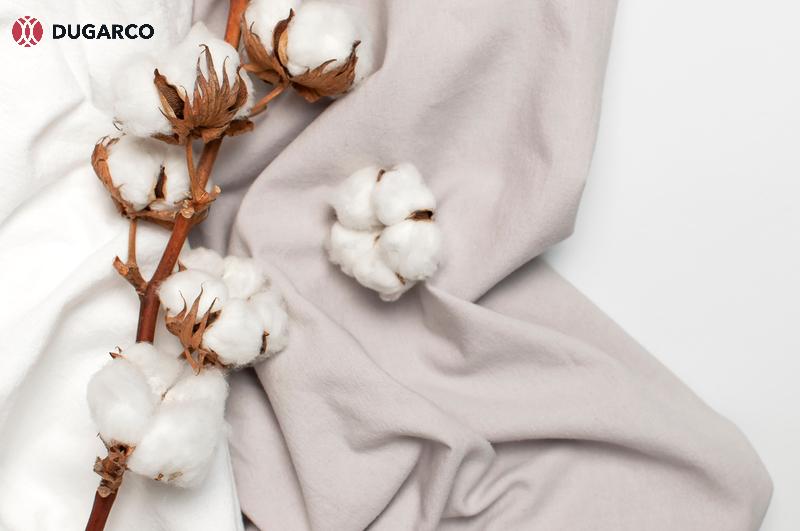In a world increasingly spotlighting sustainability and ethical consumption,the choice of fabric has transcended simple aesthetic appeal. Among the myriad of textile options, organic cotton clothing has emerged as a frontrunner, marrying comfort with conscience. Soft to the touch yet robust in its environmental credentials, organic cotton represents a harmonious balance between luxury and responsibility. As consumers become more discerning, understanding the certifications that define organic textiles becomes crucial. In this article, we will explore the nuances of organic cotton clothing, highlighting the key certifications that assure quality and sustainability while also showcasing the visionaries—enduring fashion leaders—who are championing this eco-amiable fabric. Join us as we delve into a world where fashion meets ethics, and discover how organic cotton is reshaping the landscape of contemporary style.
Exploring the Unmatched Comfort of Organic Cotton Fabrics
The allure of organic cotton lies not just in its eco-friendly origins but also in the phenomenal comfort it provides. Unlike conventional cotton, which is often treated with harsh chemicals, organic cotton is grown using methods that are gentle on both the skin and the environment. As a result, garments made from this natural fiber are incredibly soft and breathable, making them ideal for everyday wear. many people find that wearing organic cotton can reduce skin irritations and allergies, offering a soothing experience that synthetic fabrics simply cannot match.
furthermore, the cultivation of organic cotton employs sustainable agricultural practices that promote biodiversity and health within the ecosystem. By investing in organic cotton clothing, consumers can enjoy multiple benefits including:
- Enhanced breathability: Keeps you comfortable in all climates.
- Soft texture: Feels gentle against the skin.
- Eco-friendly production: Supports sustainable farming practices.
- Durability: More resilient against wear and tear.
When considering the impact of your wardrobe choices, organic cotton stands out as a leader in the quest for sustainable fashion that prioritizes comfort without compromising ethical standards. Discover the joys of wearing organic cotton today, and indulge in fabrics that feel as good as they are good for the planet.

Navigating the World of certifications in Sustainable Textiles
As the demand for sustainable fashion grows, understanding the various certifications available for organic cotton clothing becomes essential. These certifications not only guarantee the quality and sustainability of the fabric but also ensure that the production processes adhere to ethical practices.Some of the most widely recognized certifications include:
- Global Organic Textile Standard (GOTS) – Ensures that textiles are made from more than 70% organic fibers, covering the entire supply chain from raw material to manufacturing.
- OEKO-TEX® Standard 100 – Focuses on verifying that textiles are free from harmful substances, promoting healthier environments for consumers.
- Fair Trade Certified – Advocates for fair wages and working conditions for farmers and workers involved in cotton production.
Selecting certified organic cotton clothing not only contributes to eco-friendly practices but also supports brands committed to sustainability. By choosing garments backed by these certifications, consumers can make informed choices that align with their values. Below is a comparison of some leading certifications in sustainable textiles:
| Certification | Focus Area | Production Chain |
|---|---|---|
| GOTS | Organic fibers | Complete supply chain |
| OEKO-TEX® Standard 100 | Harmful substances | End product |
| Fair Trade Certified | Social standards | Farming to retail |

leading the Charge: Brands Championing Sustainable Fashion with Organic Cotton
In the ever-evolving landscape of fashion, several brands are stepping up to embrace the ethos of sustainability through the use of organic cotton. These pioneers are not just focusing on the fabric but are committed to a holistic approach that includes ethical sourcing, clear supply chains, and eco-friendly practices. Among these brands, Patagonia, People Tree, and Eileen Fisher are leading the charge, showcasing that style can harmoniously coexist with environmental responsibility.
These brands are redefining what it means to be fashionable and sustainable by prioritizing organic cotton, which is grown without harmful pesticides and chemicals, ensuring a cleaner and healthier environment. Their commitment extends beyond materials; they also strive for fairness in labor practices and community support,elevating the lives of farmers and workers across the globe. Here’s a glimpse at some of their efforts:
| Brand | Key Initiatives | Certifications |
|---|---|---|
| Patagonia | Eco-friendly packaging, fair trade | GOTS, Fair Trade Certified |
| People tree | Empowering artisans, local sourcing | GOTS, fair Trade |
| Eileen Fisher | Recycling programs, circular fashion | GOTS, B corp Certified |

Practical Tips for Building a Conscious Wardrobe with Organic Cotton Choices
Building a wardrobe that aligns with your values and promotes sustainability starts with informed choices. When opting for organic cotton, consider the following factors to ensure a conscious selection:
- Check Certifications: Look for labels such as GOTS (Global Organic textile Standard) or OEKO-TEX, which guarantee that the organic cotton is produced sustainably and ethically.
- Support Sustainable Brands: Research brands that prioritize environmental responsibility and ethical production practices. Some notable leaders in sustainable fashion include:
| Brand | Highlight |
|---|---|
| Patagonia | Renowned for their commitment to eco-friendly practices. |
| Eileen Fisher | Focuses on timeless designs and sustainable sourcing. |
| People Tree | Pioneers in Fair Trade fashion, using organic cotton. |
Additionally,consider the lifespan and versatility of organic cotton pieces. Investing in high-quality garments not only reduces waste but also promotes a minimalist lifestyle. Aim for essential items that can be mixed and matched, enhancing your wardrobe’s functionality while minimizing your ecological footprint. Keep an eye out for styles that feature classic cuts and colors to ensure longevity in both fashion and wear.
To Conclude
As we draw the curtain on our exploration of organic cotton clothing, it becomes evident that this fabric transcends mere comfort; it embodies a commitment to sustainability and ethical practices in the fashion industry.With a growing array of certifications ensuring openness and accountability, consumers are now more empowered than ever to make conscientious choices.
From the trailblazing brands championing eco-friendly production to the tactile pleasure of wearing organic cotton, each piece is a festivity of both style and responsibility. As we navigate the complexities of modern fashion, let us remember that every garment carries a story—one that can be rewritten in favor of our planet and its inhabitants.
In choosing organic cotton, we are not just investing in comfort; we are investing in a future where fashion nurtures rather than exploits. As we step forward, may our choices reflect a collective commitment to sustainability, allowing us to wear our values with pride and grace. The journey toward a more ethical wardrobe is just beginning, and with each step, we can pave the way for a thriving planet.




